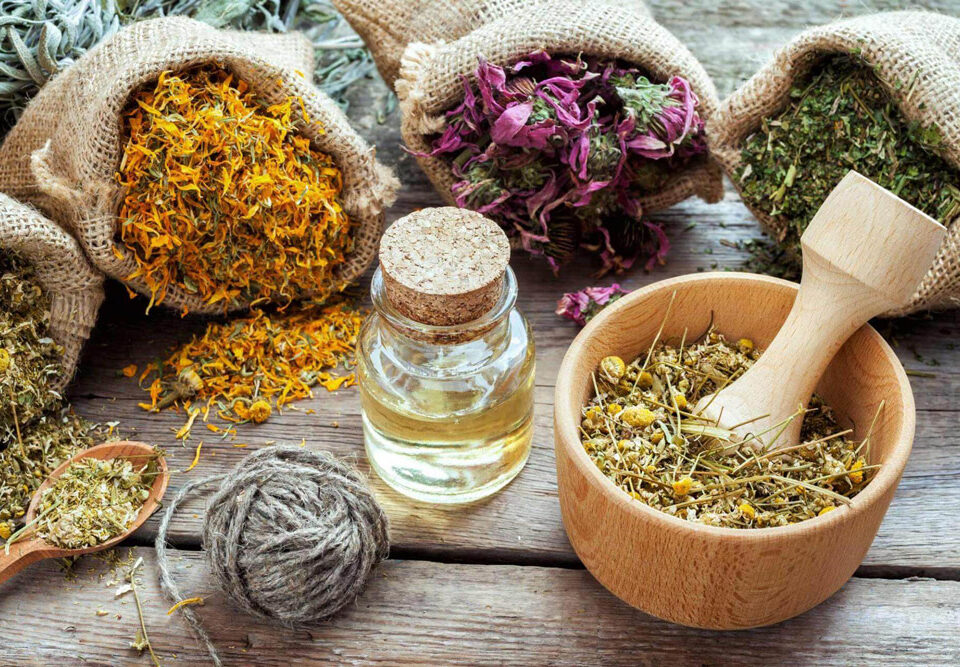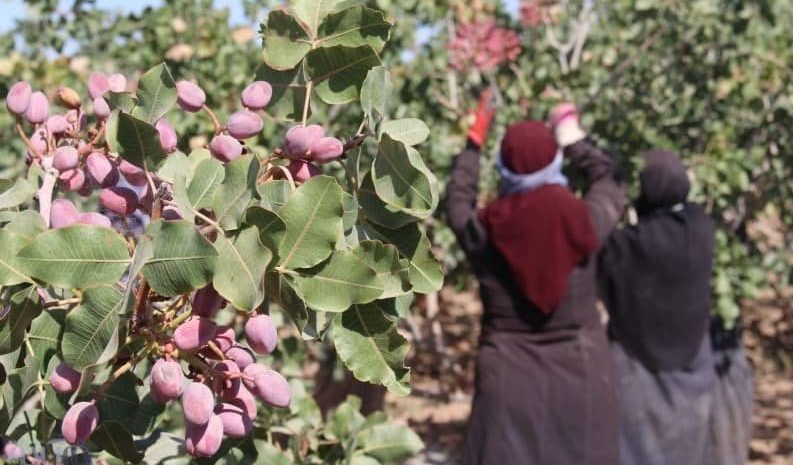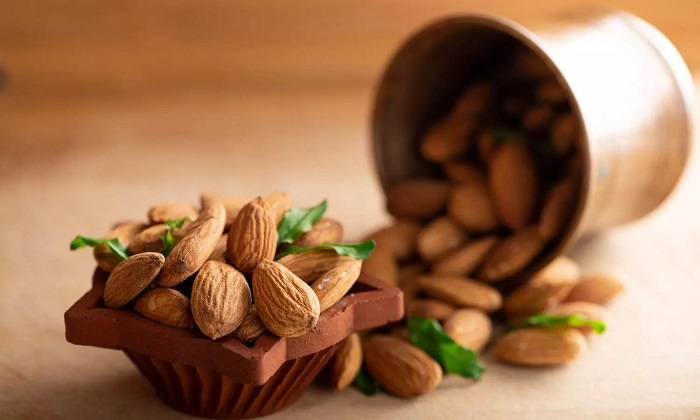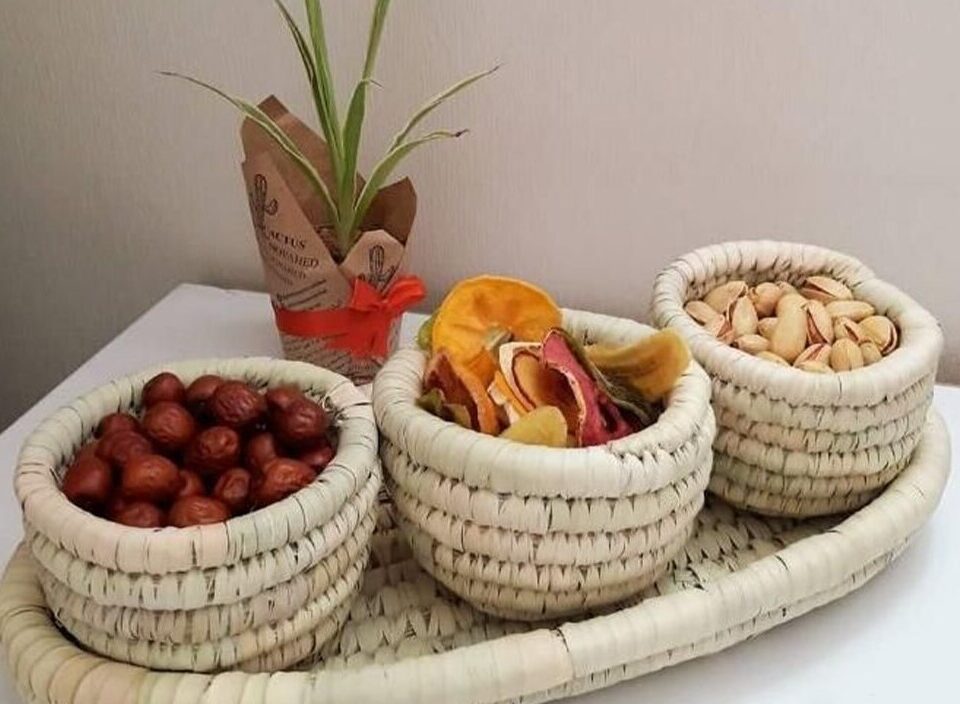
How to Create a Balanced Diet with Dried Fruits and Nuts
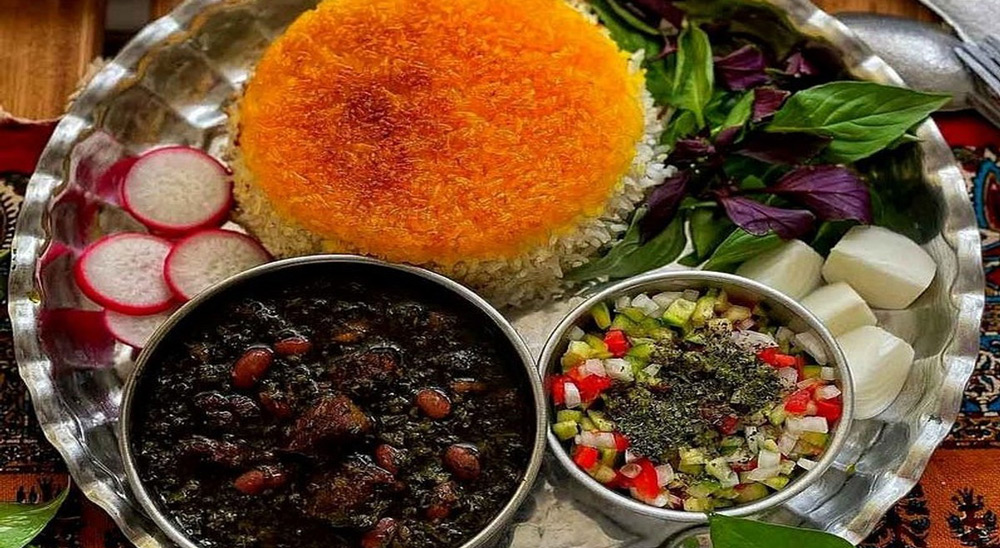
DIY Spice Blends with Iranian Ingredients
The Use of Spices in Iranian Herbal Remedies
Herbal teas and spices have been an integral part of Iranian traditional medicine for centuries, providing both physical and emotional healing. These remedies, rooted in Persian herbology, focus on using natural ingredients to maintain balance in the body and treat various ailments. Many Iranian spices not only enhance the flavor of food but also play a key role in herbal remedies and teas, with recognized benefits for digestion, relaxation, inflammation, and overall health.
Here’s a look at some of the most common Iranian herbal teas and spices used in traditional remedies, along with their health benefits and uses.
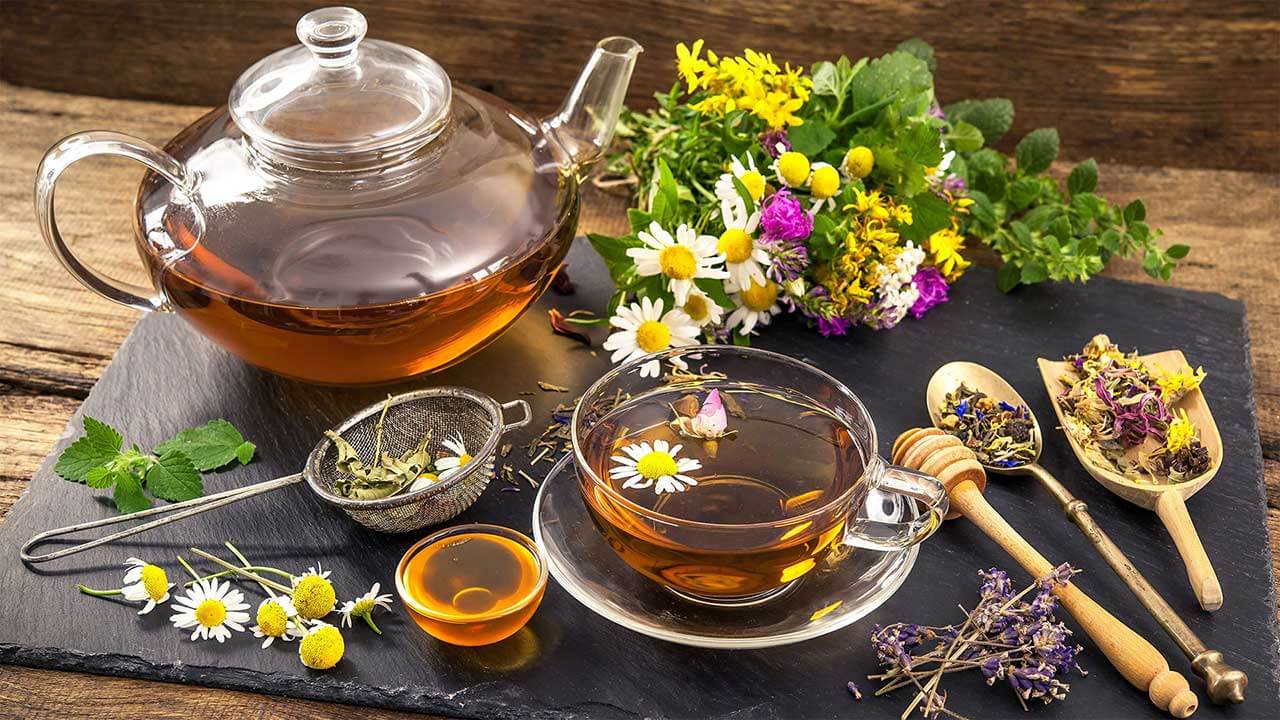
Iranian Herbal Teas and Spices
1. Saffron (Zafaran)
Saffron is one of the most prized spices in Iranian culture and has long been used in both culinary and medicinal contexts. Beyond its role in cooking, saffron is a well-known ingredient in Persian herbal medicine for its calming and antidepressant properties.
Health Benefits:
- Mood enhancement: Saffron is used to alleviate symptoms of depression and anxiety. It is believed to boost serotonin levels, leading to improved mood.
- Improves digestion: Saffron tea is often consumed to aid digestion and reduce bloating.
- Rich in antioxidants: Saffron is packed with crocin and safranal, which have anti-inflammatory properties and help protect the body from oxidative stress.
How to Use:
- Saffron Tea: Steep a few strands of saffron in hot water for 5–10 minutes. It can be consumed alone or with honey for added sweetness.
- Saffron in Remedies: Saffron can also be mixed with other herbs like cardamom or cinnamon to enhance its calming effects.
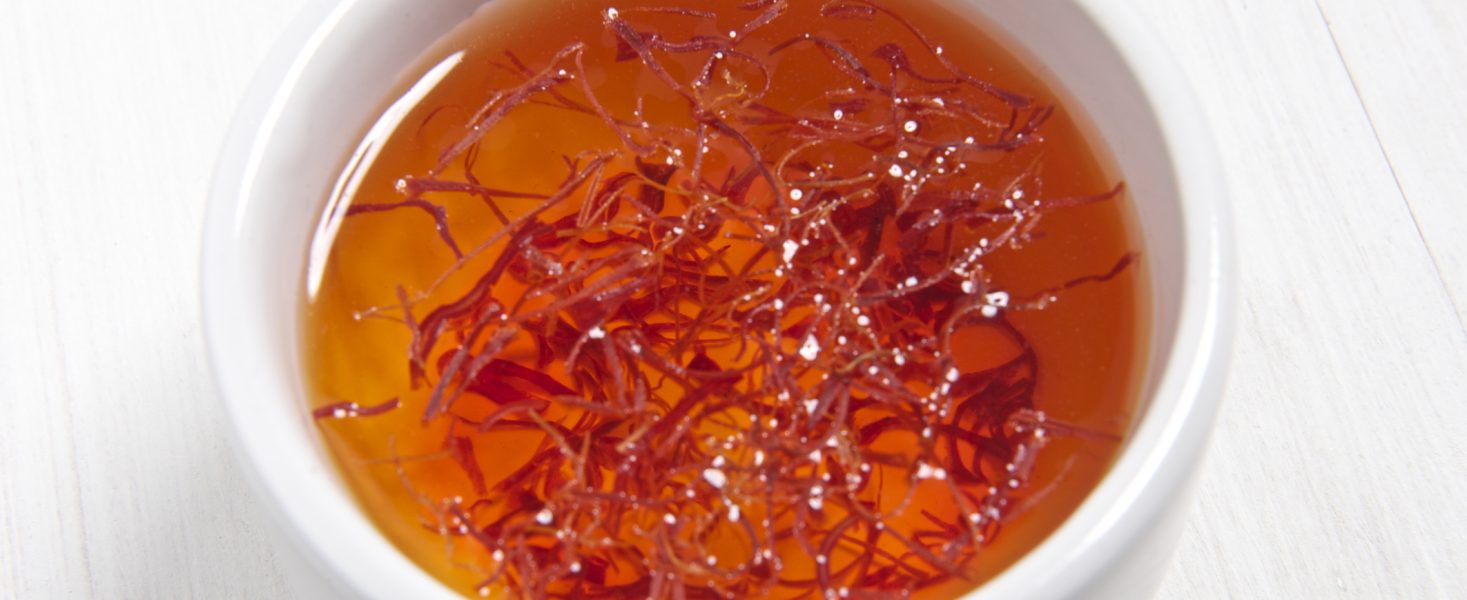
Saffron tea
2. Rosewater and Rose Petals (Gol-e-Sorkh)
Rosewater and dried rose petals have been used in Iranian remedies for centuries due to their soothing properties. They are believed to calm the mind, promote relaxation, and support digestive health.
Health Benefits:
- Calming and anti-anxiety effects: Rosewater is used to ease nervous tension and anxiety. Drinking rose petal tea is believed to improve emotional balance and relieve stress.
- Aids digestion: Rose petal tea is known to help soothe stomach discomfort and improve digestion.
- Skin benefits: Rosewater is often used topically for its anti-inflammatory and hydrating properties.
How to Use:
- Rose Tea: Steep dried rose petals in hot water for 5–7 minutes. This floral tea can be enjoyed on its own or with a touch of honey for sweetness.
- Rosewater: A small amount of rosewater can be added to other herbal teas to enhance their calming effects.
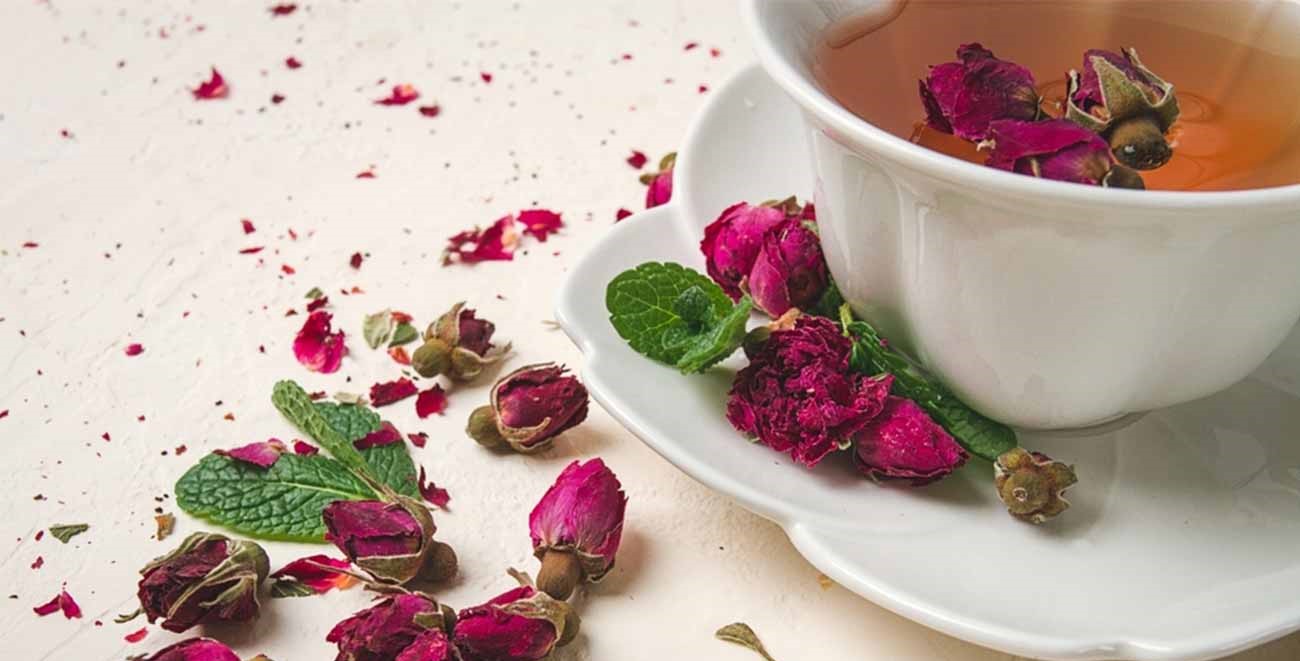
Rose Tea
3. Chamomile (Babuneh)
Chamomile is a widely used herb in Iranian herbal medicine, appreciated for its soothing and anti-inflammatory properties. Chamomile tea is commonly consumed in Iran for its calming effects and digestive benefits.
Health Benefits:
- Promotes relaxation: Chamomile is a natural sedative, making it an excellent choice for reducing stress, and anxiety, and improving sleep quality.
- Digestive aid: Chamomile tea is often used to relieve indigestion, bloating, and cramps.
- Anti-inflammatory properties: It has been traditionally used to reduce inflammation and soothe irritated skin or mucous membranes.
How to Use:
- Chamomile Tea: Steep dried chamomile flowers in hot water for 5–10 minutes. Enjoy before bed to aid sleep or after meals to ease digestion.
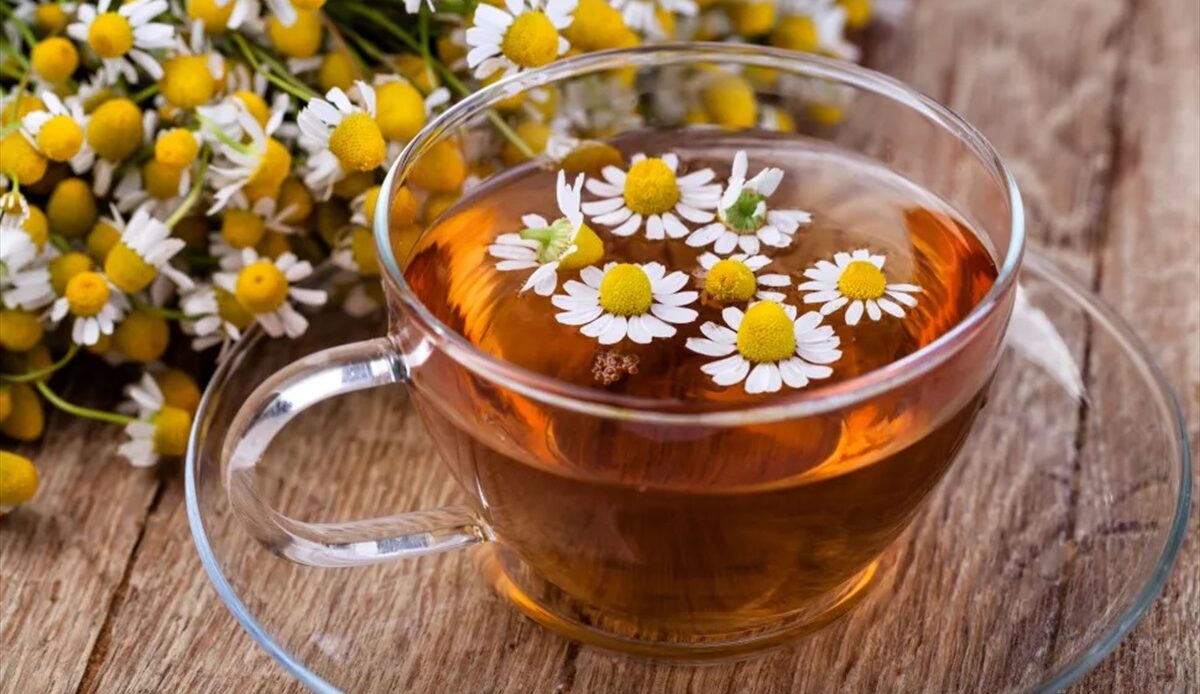
Chamomile Tea
4. Cardamom (Hel)
Cardamom is another spice commonly used in Persian herbal teas and remedies. Known for its sweet, aromatic flavor, cardamom has both culinary and medicinal uses, especially for its digestive and calming properties.
Health Benefits:
- Digestive support: Cardamom is widely used to treat indigestion, bloating, and gas. It stimulates digestive enzymes, aiding in food breakdown.
- Anti-anxiety: The aroma of cardamom is believed to have a calming effect, reducing stress and anxiety.
- Antioxidant-rich: Cardamom contains antioxidants that help fight inflammation and protect against cellular damage.
How to Use:
- Cardamom Tea: Crush a few cardamom pods and steep in hot water for 5–7 minutes. You can add a cinnamon stick or a few saffron strands for added flavor and benefits.
- Spice Blends: Cardamom is often blended with other spices like cinnamon or cloves in traditional Persian teas, enhancing both the flavor and the medicinal properties.
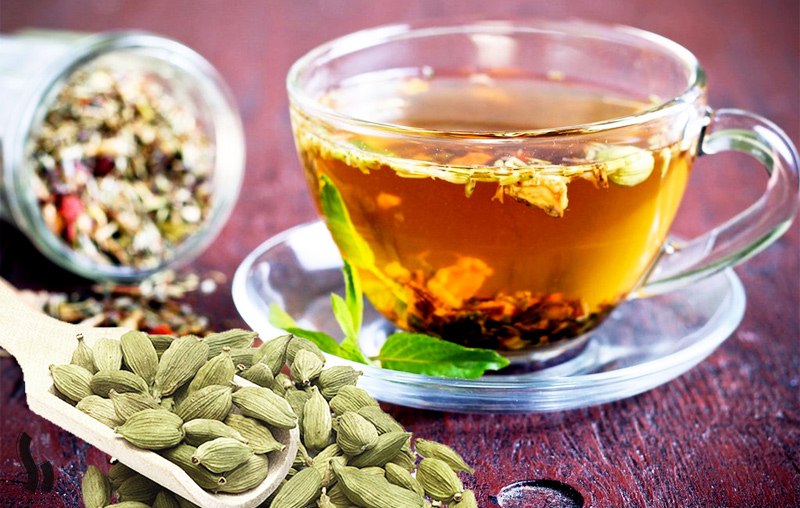
Cardamom Tea
5. Cinnamon (Darchin)
Cinnamon is a common spice in Iranian remedies, known for its warming properties and sweet-spicy aroma. It has been used traditionally to improve circulation, boost metabolism, and support overall health.
Health Benefits:
- Blood sugar regulation: Cinnamon is believed to help balance blood sugar levels, making it beneficial for people with diabetes or those looking to improve energy levels.
- Anti-inflammatory: Cinnamon’s antioxidant and anti-inflammatory properties make it useful for reducing inflammation in the body.
- Digestive aid: Cinnamon tea is consumed to ease digestive discomfort and improve metabolism.
How to Use:
- Cinnamon Tea: Add a cinnamon stick or ground cinnamon to boiling water and let steep for 10 minutes. It can be combined with honey or ginger for a warming drink.
- Cinnamon in Blends: Cinnamon is often included in herbal tea blends with cardamom, saffron, or ginger to enhance its digestive and warming effects.
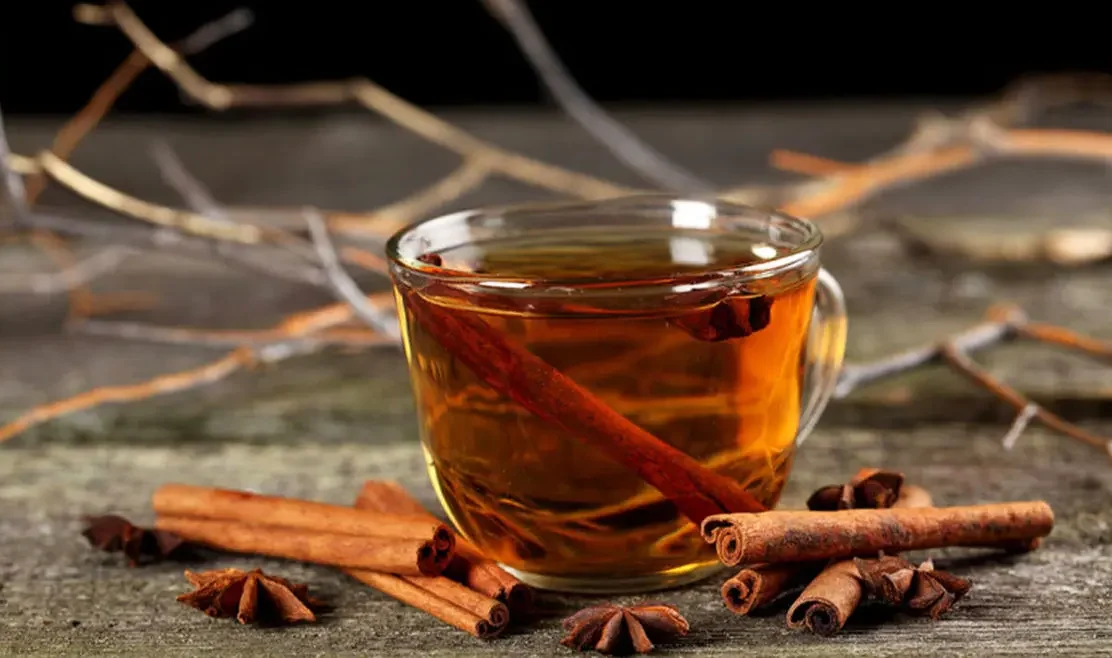
Cinnamon Tea
6. Mint (Na’na)
Mint is a staple in Iranian herbal medicine and is frequently used to treat digestive issues and respiratory conditions. Mint tea is commonly consumed after meals to aid digestion.
Health Benefits:
- Improves digestion: Mint is known for its ability to relieve indigestion, bloating, and gas. It also stimulates bile production, aiding in fat digestion.
- Respiratory support: Mint is used to open the airways and relieve congestion and coughing.
- Stress relief: The cooling, refreshing effect of mint is also believed to help alleviate headaches and reduce stress.
How to Use:
- Mint Tea: Steep fresh or dried mint leaves in boiling water for 5–7 minutes. This tea is often enjoyed after meals to soothe the stomach.
- Cold Infusions: Mint leaves can be used to make a refreshing cold tea during the warmer months, combining it with cucumber slices and lemon for a hydrating drink.
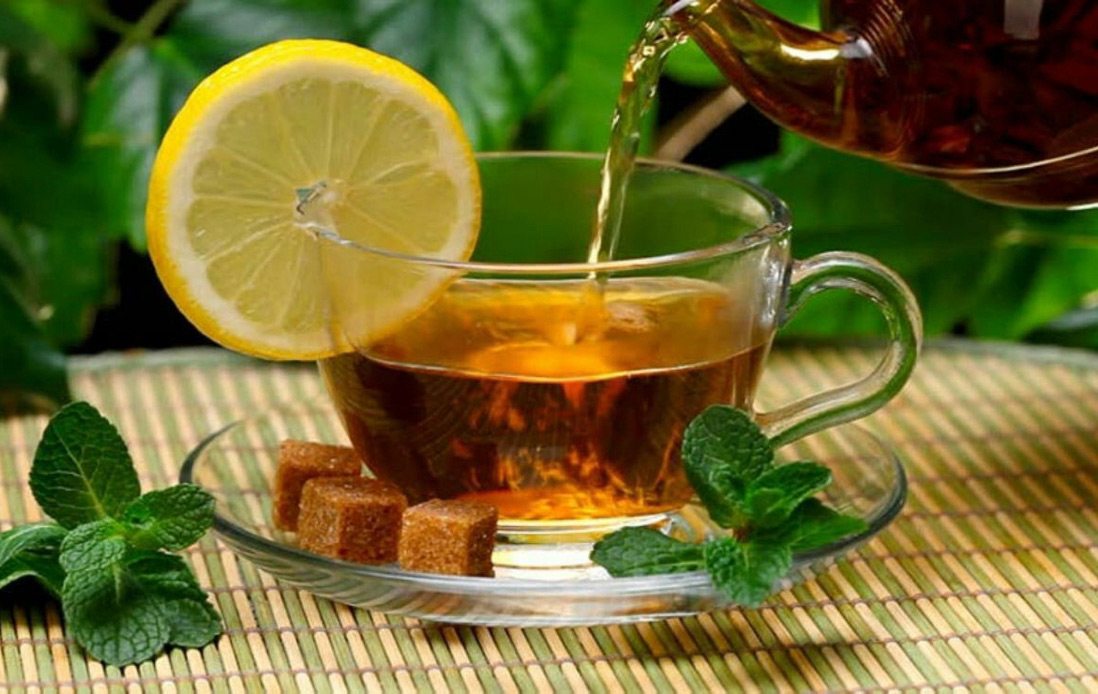
Mint Tea
7. Ginger (Zanjabil)
Ginger is a warming spice commonly used in Iranian herbal remedies for its ability to boost circulation, aid digestion, and fight nausea. It’s also a staple in Persian cuisine, where it’s added to both savory dishes and drinks.
Health Benefits:
- Digestive aid: Ginger is known to reduce nausea, ease indigestion, and stimulate digestive juices, making it a go-to remedy for stomach discomfort.
- Anti-inflammatory: Ginger has potent anti-inflammatory properties that can help relieve muscle pain and joint discomfort.
- Boosts circulation: Ginger tea is often consumed to warm the body and improve blood flow.
How to Use:
- Ginger Tea: Grate fresh ginger and steep in boiling water for 10 minutes. Add lemon and honey for a soothing tea that helps with digestion and immune support.
- Spice Blends: Ginger is frequently combined with other warming spices like cinnamon and cardamom in Persian tea blends to enhance its effects.
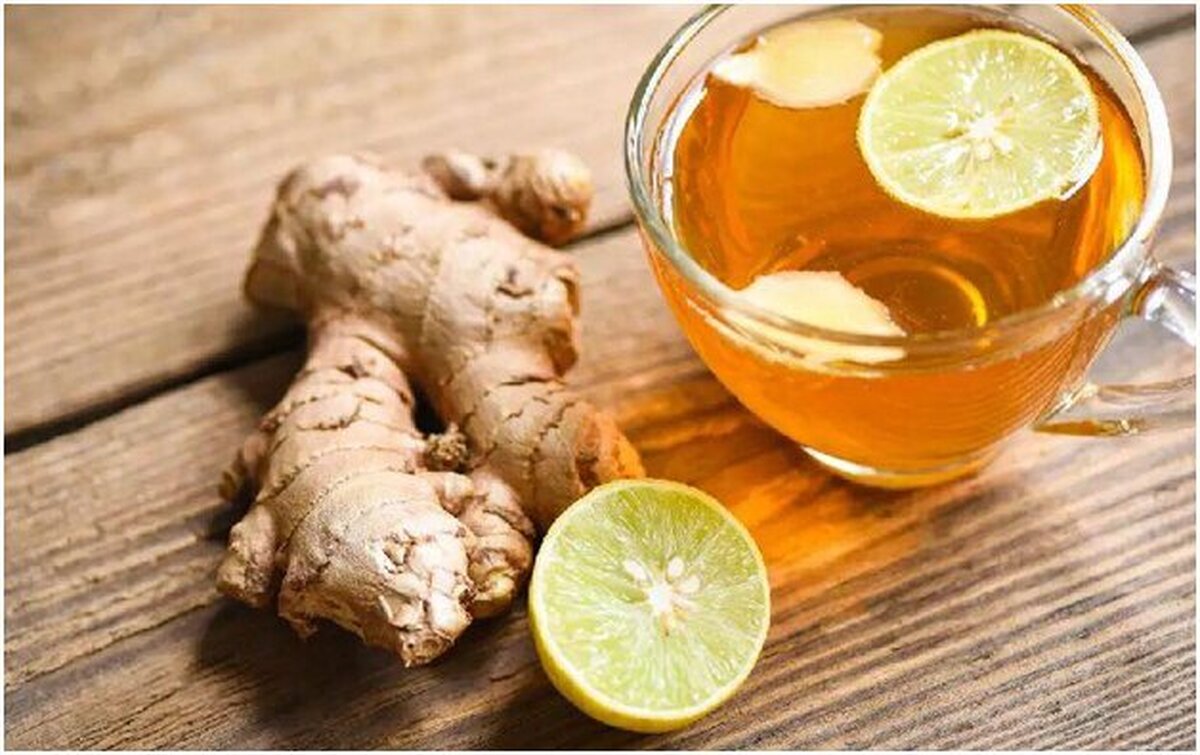
Ginger Tea
8. Lemon Balm (Badranjboyeh)
Lemon balm is a fragrant herb with calming properties, often used in Persian herbal teas to reduce stress and promote relaxation. It has a light, citrusy flavor that blends well with other herbs.
Health Benefits:
- Reduces anxiety and stress: Lemon balm is used as a natural remedy for anxiety, nervous tension, and insomnia.
- Promotes digestion: It also aids in relieving indigestion and bloating.
- Boosts cognitive function: Lemon balm has been shown to enhance memory and improve focus, making it a popular choice for people seeking to boost brain health.
How to Use:
- Lemon Balm Tea: Steep fresh or dried lemon balm leaves in hot water for 5–7 minutes. Combine with mint or chamomile for a calming tea blend.
- Stress-Relief Remedies: Lemon balm can be added to saffron or rosewater teas to amplify its calming effects.
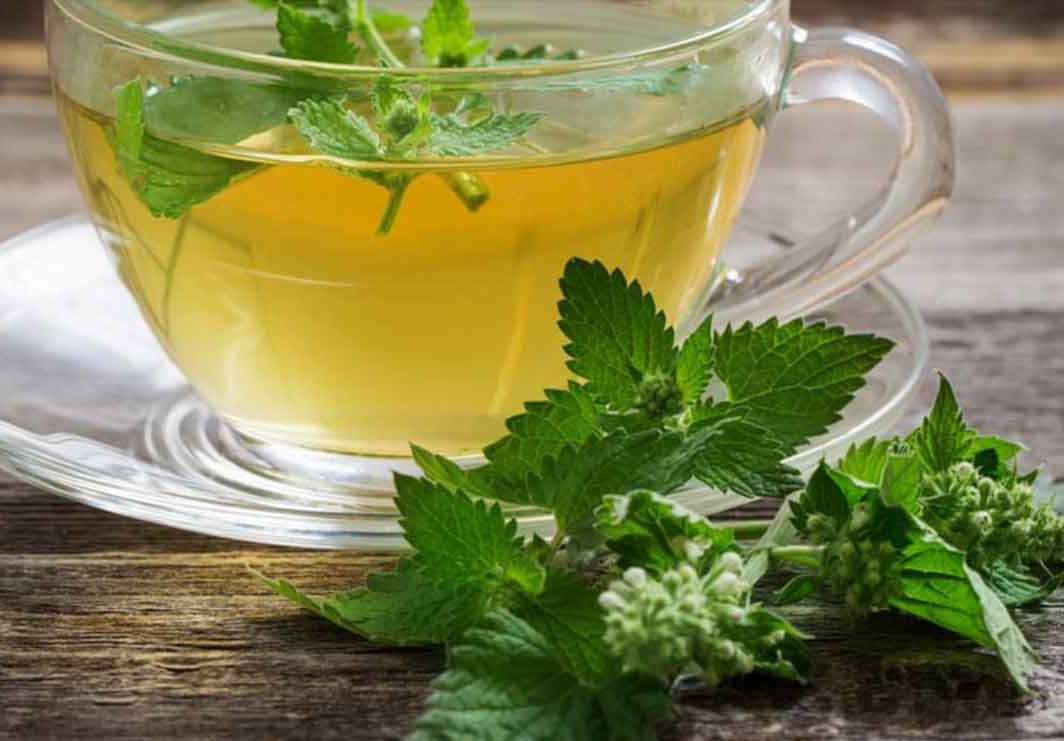
Lemon Balm Tea
9. Sumac (Somagh)
Sumac is a tangy spice traditionally used in Iranian cuisine, but it also plays a role in herbal remedies due to its rich antioxidant content and health benefits.
Health Benefits:
- Anti-inflammatory properties: Sumac has antioxidant and anti-inflammatory effects, making it useful in managing inflammation-related conditions.
- Digestive support: Sumac is believed to help improve digestion and reduce indigestion when added to herbal teas.
- Regulates blood sugar: Studies suggest that sumac may help lower blood sugar levels, making it beneficial for people with diabetes.
How to Use:
- Sumac Tea: A small amount of ground sumac can be steeped in hot water and combined with other herbs like mint or thyme to create a tangy, refreshing tea.
- In Spice Blends: Sumac can be mixed with cardamom or cinnamon for a unique, flavorful tea that also aids digestion.
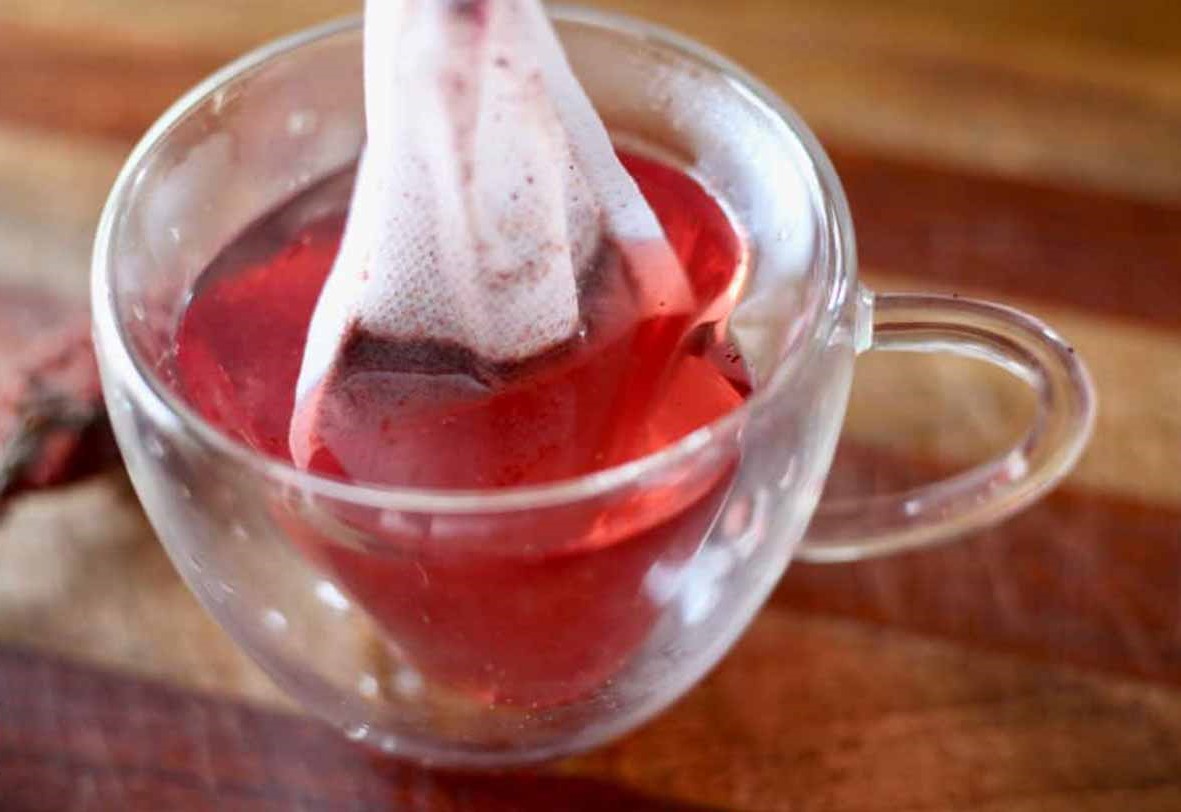
Sumac Tea
Conclusion
Iranian herbal teas and spices are deeply rooted in the country’s rich tradition of natural medicine. Spices like saffron, cardamom, cinnamon, and rose petals, alongside herbs like mint and chamomile, offer a wide array of health benefits that promote digestion, reduce stress, and enhance overall well-being. Incorporating these spices and teas into daily life not only provides nourishment but also supports physical and emotional balance, reflecting the holistic approach of Persian herbology.



